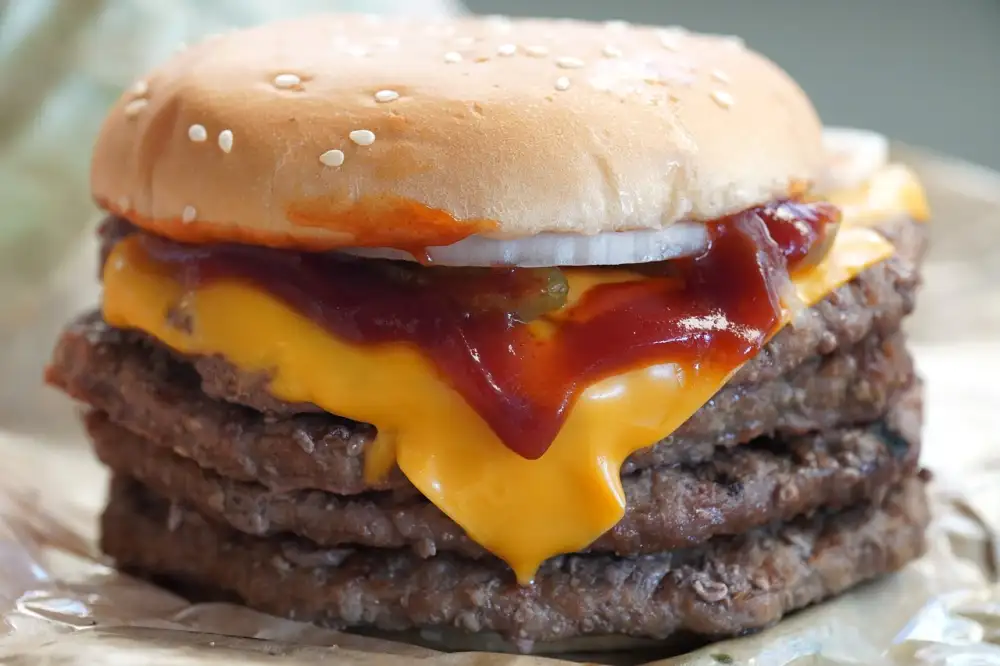Burger King Closures: Unveiling the Latest News on Store Shutdowns

In recent months, the restaurant industry has been hit hard by the global pandemic. One prominent player in the fast-food sector, Burger King, has made headlines with its decision to close a number of its stores. This move has raised concerns and sparked discussions about the future of the company and the overall state of the restaurant industry. In this article, we will delve into the latest news surrounding Burger King's store closures and explore the factors that have led to this challenging situation.
Impact of COVID-19 on the Restaurant Industry
The COVID-19 pandemic has had a devastating impact on the restaurant industry, and Burger King is no exception. With lockdowns and social distancing measures in place, people have been dining out less frequently, leading to a significant decline in revenue for restaurants across the globe. The closure of Burger King stores is a direct result of these challenging circumstances. As consumers prioritize safety and opt for takeout or delivery options, many restaurants have struggled to adapt their business models to meet changing demands. The pandemic has forced the industry to confront new challenges and find innovative ways to survive in this unprecedented time.
Burger King's Decision to Close Stores
Burger King, one of the largest fast-food chains in the world, has recently made the difficult decision to close a number of its stores. This move comes as a response to the challenges posed by the ongoing COVID-19 pandemic. The closure of these stores is part of Burger King's strategy to streamline operations and ensure long-term sustainability in an increasingly competitive market. While this decision may be disappointing for fans of the iconic brand, it is a necessary step for Burger King to adapt to the changing landscape of the restaurant industry.
Factors Influencing Burger King's Store Closures
Several factors have contributed to Burger King's decision to close stores. Firstly, the economic downturn caused by the COVID-19 pandemic has significantly impacted the restaurant industry. With reduced consumer spending and restrictions on dining-in, fast-food chains like Burger King have experienced a decline in sales.
Additionally, changing consumer preferences and the rise of healthier eating habits have affected Burger King's performance. As more people opt for plant-based alternatives or seek out local, independent restaurants, traditional fast-food chains face increased competition and a need to adapt their menus.
Furthermore, rising operational costs such as rent, labor, and food prices have put pressure on Burger King's profitability. The closure of underperforming stores is seen as a strategic move to cut costs and focus resources on more profitable locations.
Lastly, technological advancements have also played a role in store closures. The growing popularity of online food delivery services has shifted consumer behavior towards ordering food from home rather than dining out. This shift has forced fast-food chains like Burger King to invest heavily in delivery infrastructure or risk losing customers to competitors who offer convenient delivery options.
Considering these factors, it is clear that Burger King's store closures are a result of both external market forces and internal strategic decisions aimed at improving profitability and adapting to changing consumer demands.
Regional and Global Store Closure Statistics
The impact of the COVID-19 pandemic on the restaurant industry has been devastating, and Burger King is no exception. As a result, the fast-food giant has made the difficult decision to close a number of its stores worldwide. According to recent statistics, Burger King has closed approximately 250 restaurants in the United States alone. This represents a significant blow to both employees and customers who have come to rely on their local Burger King for their favorite flame-grilled burgers.
On a global scale, Burger King has also experienced closures in various countries. In Europe, around 200 locations have shut down permanently due to the ongoing economic challenges posed by the pandemic. Additionally, store closures have been reported in Asia and South America as well.
These closure statistics highlight the severity of the situation faced by Burger King and other players in the restaurant industry. The decline in customer footfall and revenue caused by lockdowns and social distancing measures have forced many businesses to reevaluate their operations and make tough decisions about store closures.
It is important to note that these closure statistics are constantly evolving as the situation unfolds. As governments continue to navigate through this crisis, it remains uncertain how many more stores will be affected in the coming months.
The impact of these closures extends beyond just numbers; they have real-life consequences for employees and franchisees. Many workers are facing job losses or reduced hours, while franchisees are grappling with financial uncertainties.
In order to survive in this challenging market, Burger King must adapt its strategies. This includes focusing on delivery services, drive-thru options, and online ordering platforms that cater to changing consumer preferences amidst social distancing measures.
While it may be a difficult road ahead for Burger King and other restaurants, there is hope for recovery as restrictions ease and consumer confidence returns. By embracing innovation and finding new ways to connect with customers, these establishments can navigate through these turbulent times and emerge stronger than ever before.
Effects on Burger King Employees and Franchisees
The closures of Burger King stores have had a significant impact on both employees and franchisees. With the shutdowns, many employees have been left without jobs, causing financial uncertainty and hardship. Franchisees who invested in Burger King locations are also facing major challenges, as their businesses have been forced to close, resulting in lost revenue and potential bankruptcy. The effects on employees and franchisees highlight the devastating consequences of the store closures for individuals and small business owners alike.
Strategies to Adapt and Survive in the Changing Market
In order to adapt and survive in the changing market, Burger King needs to implement several strategies. Firstly, they should focus on enhancing their delivery and takeout services. With the rise of online food ordering, it is crucial for Burger King to provide convenient and efficient options for customers who prefer to dine at home.
Secondly, Burger King should consider expanding their menu to include healthier options. As consumers become more health-conscious, offering a variety of nutritious choices can attract a wider customer base and cater to changing dietary preferences.
Furthermore, Burger King should invest in technology and automation to streamline operations and reduce costs. Implementing self-order kiosks or mobile ordering systems can improve efficiency and enhance the overall dining experience.
Additionally, Burger King should explore partnerships with popular food delivery platforms such as Uber Eats or DoorDash. This can help reach a larger customer base and increase sales through online delivery channels.
Lastly, Burger King should prioritize marketing efforts to promote their unique offerings and differentiate themselves from competitors. Engaging with customers through social media platforms and launching targeted advertising campaigns can help create brand awareness and drive foot traffic to their stores.
By implementing these strategies, Burger King can adapt to the changing market dynamics and position themselves for long-term success in the restaurant industry.
In conclusion, Burger King's store closures are a clear indication of the challenges faced by the restaurant industry in the wake of COVID-19. As the pandemic continues to disrupt business operations, it is crucial for companies like Burger King to adapt and find innovative ways to survive in this changing market. The future remains uncertain, but by implementing strategies such as enhancing delivery services, focusing on digital marketing, and prioritizing health and safety measures, Burger King can position itself for success in the post-pandemic era. Similarly, other players in the restaurant industry must also embrace these changes and explore new avenues to stay relevant and meet evolving consumer demands. Only by staying proactive and resilient can Burger King and its counterparts navigate through these challenging times and emerge stronger than ever before.
Published: 19. 12. 2023
Category: Home



